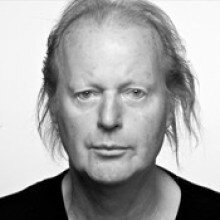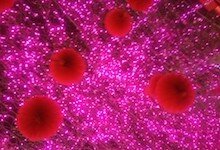Nederlands ►

Jacob Groot (Venhuizen, 1947) has been publishing poetry, prose and essays since 1970. His first volume of poetry, Net Als Vroeger (As of Old), which was published under the nom-de-plume Jacob der Meistersänger, formed a generous break with the spirit of the times. In his subsequent collections, he continued in this vein, with his poetry surrendering, in a manner that was increasingly plain-spoken in tone and aspiration, to what one might best describe as the disclosure of language and reality.
Disclosure: this is what writing poetry means for Groot. It is not, however, any divulgence of the secrets or mysteries that might lurk or be at play behind reality. Groot does not solve riddles, but he is merciless in compelling us to share reality as it occurs to him – uncensored, unabashed and often enough unpleasant. He wages a publicity campaign for the exaltation of the ordinary – he is a mystic of the banal, and his poetry seems to in particular to aim to initiate us into that world.
In his most recent volume, Divina Noir (2010), he creates soundbites of noises and voices, of street-talk, of sex, of jokes, of whimsy, of films he saw as a boy and did not recognise back then, of promises and disasters. Of course, seriousness lies in wait here, but in this poetry one also hears a distraught outburst of laughter, which has an infectious effect on all the senses, including that of language. The poems chase and besiege the reader with their lust for language; they harangue the reader, only to retreat into their shell. Groot’s poetry is impudent and self-referential; one moment it might invoke great laughs, and the next the opposite – euphoria and almost religious rapture.
“There is no need at all for mirroring” is the startlingly programmatic opening line of Divina Noir. Language for Groot is no illustration but rather an intervention and a realisation. In his poetry nothing is certain; there is no safety net or lifebuoy. He inverts every assertion, including the most intimate or exalted, or else he causes it to vanish in a jumble of apparent banalities. The poetry of Jacob Groot can be read as both redemption and revelation.
Bibliography
Poetry
Net als vroeger, Thomas Rap, Amsterdam, 1970 (pseudoniem: Jacob der Meistersänger)
Uit de diepten, De Harmonie, Amsterdam, 1972
Op komst, De Harmonie, Amsterdam, 1975
De droom van het denken, De Harmonie, Amsterdam, 1980
Leeg, De Harmonie, Amsterdam, 1980
De liefste, De Harmonie, Amsterdam, 1981
Topgeluk, De Harmonie, Amsterdam, 1986
Losse schuur, De Harmonie, Amsterdam, 1993
Natuurlijke liefde, De Harmonie, Amsterdam, 1998
Zij Is Er, De Harmonie, Amsterdam, 2002
Heerlijkheid Van Luchtmetaal, De Harmonie, Amsterdam, 2005
Lofzang, De Harmonie, Amsterdam, 2009
Divina Noir, De Harmonie, Amsterdam, 2010
Novels
De verzoening, De Harmonie, Amsterdam, 1983
Billy Doper, De Harmonie, Amsterdam, 2008
Essays
Nieuwe muziek: een Herman Gorter boek, Wetenschappelijke Uitgeverij, Amsterdam, 1980
Gelukkige Lippen, De Harmonie, Amsterdam, 2004
Anthology
Hoe de wereld beschreven moet worden, Querido, Amsterdam, 1999 (anthology of world poetry)







